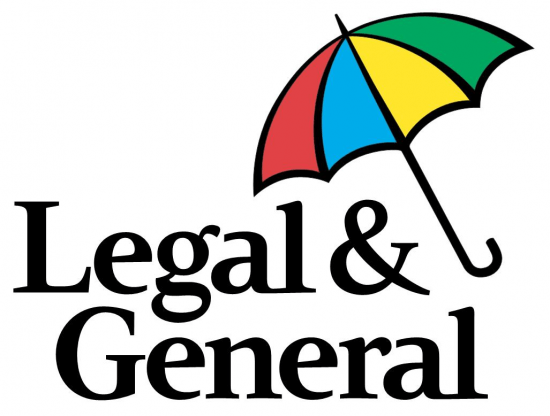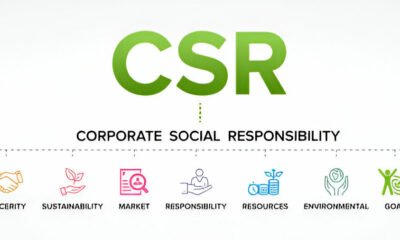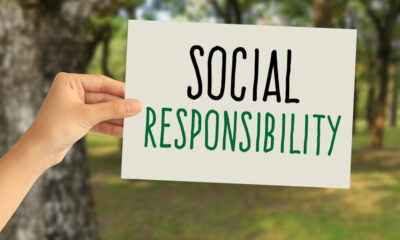

Features
CSR is about ‘having mechanisms to fix market inequalities or injustices’
On April 15, an event in London will question whether corporate social responsibility (CSR) has reached its sell-by date.
Hosted and produced by Responsible 100, Be Inspired Films and Kyocera Document Solutions, the interactive panel discussion forms part of Business in the Community’s Responsible Business Week 2013.
In the run-up to April 15, we’ll be hearing from all the panellists set to speak at the event, and have already heard from Kyocera’s Tracey Rawling Church, Matter&Co’s Tim West and Be Inspired Film’s Ravinol Chambers.
Blue & Green Tomorrow posed the same set of questions to Graham Precey, head of CSR at Legal & General Group – one of the UK’s leading financial services firms.
What does ‘corporate social responsibility’ mean to you?
Lawyers might see companies as bundles of contracts; accountants as a collection of cash flows, but to me companies are also big groups of people held together with an inspiring common purpose.
Those people must act in a way that that can show to the outside world that they are economically valuable, socially useful and environmentally efficient. That’s responsibility in action.
Can you explain the difference, if any, between responsible business and corporate social responsibility?
I prefer to talk about ‘conscious business’ or the ‘responsibility of business’. Whatever you call it, it’s fundamentally about companies having mechanisms to fix the inequalities or injustices that are material to their business or marketplace that the outside world cares about too.
How widespread/mainstream is corporate social responsibility, in the sense you describe, and do you have any best-in-class examples?
The recession has weeded out those companies who are doing CSR for publicity and short-term gains. To use an old adage, “When the tide goes out you can see who is wearing swimming trunks“.
Some of the real social and economic inequalities that need corporate attention and problem solving are long-term and cannot be solved by one sector alone. Important issues such as dignity in later life, housing and health equality are big, systemic, long-term issues that no one organisation alone can solve.
It always worries me when you read a company’s sustainability report which states a problem in the same year that it solves it!
It is the quieter companies who simply get on with it, who tend to dig in and understand what’s behind the issues that matter. They are campaigners and have learnt from the good work that NGOs have done. Companies increasingly need to be campaigners for social and economic change.
How can you find a company like this? Look for those companies who are proud of the depth and diversity of their research and development approach and have a ‘house view’ of the long-term macro trends. It is those companies who can spot the new opportunities and get into problem solving mode quicker.
Without stealing the event’s thunder, has ‘corporate social responsibility passed its sell-by date? And why do you say that?
A sell-by date to me means that it’s over and the product is unfit for human consumption. I’m not sure that is where we are with CSR.
What we are seeing is that the expectation of society for companies to be a force for good is increasing. The latest SIGWATCH report for financial services shows that there are 49 issues that the outside world expects that sector to be responsible for solving and stewarding, from executive pay to ATM cash machine charges. Companies must work through all of this with their strategy and work out what’s material to their business.
This is often challenging as we are seeing a combination of social media and people power to create the world of the ‘non-stakeholder’. Opinions of poor corporate behaviour can gain ground quickly and impact the bottom line of a business very quickly and then trust is lost from people that do not own a share or product in your business.
At the same time companies have a huge wealth of experience and scale to bring to bear on the big social and economic issues. They must see themselves as having an important role in providing solutions to the big issues that matter.
What will corporate social responsibility look like in 10 years from now?
Good question. There are a number of things that I think will be in place for companies in the future.
We are just doing a key piece of research with Business in the Community, looking at how publicly quoted companies interact with shareholders. Some interesting points have come up.
One major finding is that there is far too much unconscious capital available to companies to fund their activities, i.e. investors who don’t care where their money is going or how it is being used. And too few companies who are able to tell a long-term story of how they are looking to run their business with consciousness.
There is a tipping point not far in the future at which more conscious capital will fund conscious businesses and this will be business as usual. Organisations like Triodos Bank have shown that transparency on money in and money out of the organisation has led to growth and an increase in customers. There is a lot to learn for all of us.
I also think that businesses will continue to be more open to solve society’s issues more collaboratively with the third sector and public sectors through their products and solutions. We will see blended solutions using the best capabilities from each sector. It’s almost as if CSR becomes research and development with consciousness!
And finally, companies must be prepared to be even more transparent on their operations. This means that if there are questions on your business on the big issues such as taxation, executive pay, environmental issues and social inclusion, you should be prepared to answer whether it is material or immaterial to your business. This is why the Responsible 100 is different.
See here for more information on the CSR event.
Further reading:
‘We need to go deeper with corporate social responsibility’
Some corporate social responsibility has ‘gone stale’
‘Corporate social responsibility is an attitude of mind’
Has CSR reached its sell-by date? Part 1


 Environment11 months ago
Environment11 months agoAre Polymer Banknotes: an Eco-Friendly Trend or a Groundswell?

 Features10 months ago
Features10 months agoEco-Friendly Cryptocurrencies: Sustainable Investment Choices

 Features12 months ago
Features12 months agoEco-Friendly Crypto Traders Must Find the Right Exchange

 Energy10 months ago
Energy10 months agoThe Growing Role of Solar Panels in Ireland’s Energy Future



























